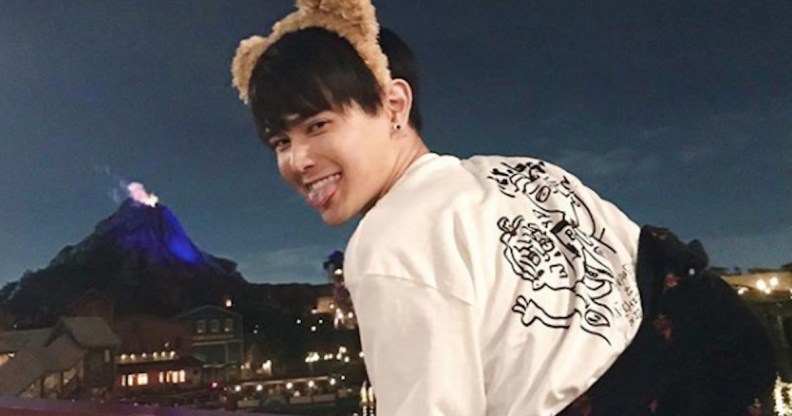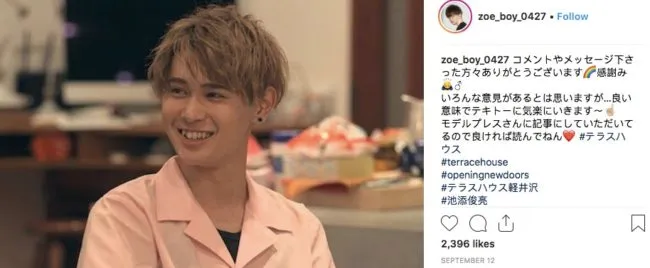Japan’s Terrace House welcomes first LGBT lodgers

Japanese reality show Terrace House is believed to have welcomed its first openly LGBT+ housemates.
The series, currently in its fourth season, follows six strangers—three men and three women—as they live and date together.
Terrace House: Opening New Doors recently opened its doors to Shunsuke Ikezoe, a 21-year-old aspiring makeup artist from Tokyo, who is questioning his sexuality and is considering identifying as bisexual.

Ikezoe thanked his fans for their support on Instagram. (zoe_boy_0427/Instagram)
It has also introduced Maya Kisanuki, a 19-year old fashion student, who has said she is open to dating other women.
In an interview on YouTube, Ikezoe reportedly said: “If I lived in a environment with men and women, I thought I would be able to find something out about myself,” Ikezoe says in the video. “That’s the main reason [for joining the show].”
The show, aired on Netflix and Fuji Television, first hit TV screens back in 2012.
The programme has generally avoided discussing social issues up until this point.
Since then, it has become a worldwide sleeper hit of cult status.
Social media users have praised Ikezoe’s inclusion on the show.
Ikezoe posted on Instagram on September 12, thanking viewers for their support.
“Just watched the episode,” one person wrote on Instagram. “I’m so happy they added you! I’m even happier that the boys are kind to you ❤️ this show needed the diversity ️ .”
One person wrote on Twitter: “#TerraceHouse has a bisexual Japanese house member and I’m unable to contain my excitement.”
And one person wrote on Twitter: “TERRACE HOUSE (popularity Japanese reality TV show) FINALLY HAS AN LGBT MEMBER! He says he’s bisexual, but his profile says he’s more of a ‘genderless’ person.
“I think this is a huge move forward and am so happy they’re finally having more people of different backgrounds!!!”
Although Japan is relatively progressive on LGBT+ rights when compared with other LGBT+ countries, same-sex couples still can’t get married in the country.
Some cities have started to introduce partnership certificates to recognise the relationships of LGBT+ couples.
There is also no national law protecting LGBT+ people from discrimination. However, some cities have introduced legislation to prevent this.
A 2015 poll found that 51 percent of people in Japan support equal marriage.
A 2013 poll, meanwhile, concluded that 54 percent of people in Japan agreed that homosexuality should be accepted by society.

